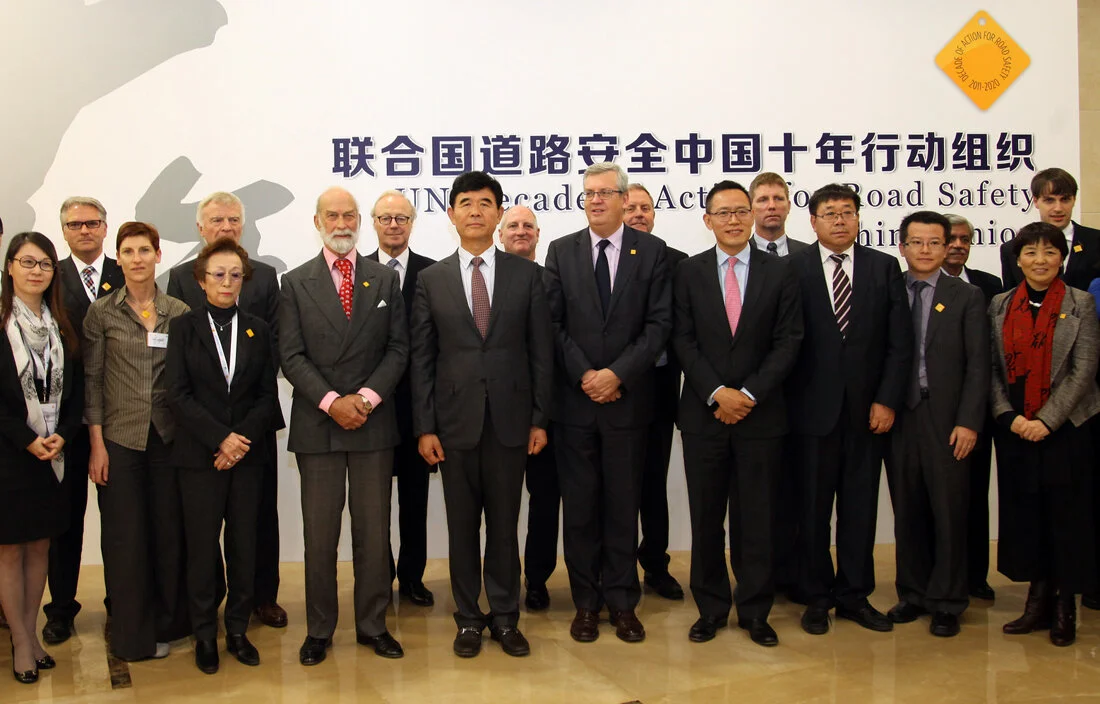Electronic Stability Control (ESC) Must Become Standard Fit Worldwide
Tianjin, China… Global NCAP warmly welcomes the mandatory fitment of the life saving crash avoidance technology, electronic stability control (ESC) from 1 November 2014 in all new cars in Europe. In the European Union it is estimated that since 1995 at least 188,500 crashes involving injury have been avoided and more than 6100 lives saved by ESC.
The umbrella body for New Car Assessment Programmes (NCAPs) is now calling for the benefits of this life saving technology to be extended worldwide. Global NCAP is urging all UN Member States to make the benefits of ESC a standard fit on all cars worldwide during the current UN Decade of Action.
Max Mosley, Chairman of Global NCAP said: “The current ESC global fitment rate of approximately 59% of new passenger and light duty vehicles is too low, action is needed to raise this to 100%, at the latest by the close of the UN Decade of Action for Road Safety in 2020.”
Global NCAP’s Secretary General David Ward said: “ESC is the most significant advance in vehicle safety since the introduction of the seatbelt. The anti-skid technology has helped prevent hundreds of thousands of loss of control crashes, saving tens of thousands of lives. Like seatbelts, legislators and automakers should now ensure that all new cars everywhere have ESC.”
At Global NCAP’s Annual Meeting, which took place at the China Automotive Technology & Research Centre (CATARC) in Tianjin, China on 29-31 October, Global NCAP adopted a Declaration on ESC which asks all UN Member States, especially those that produce automobiles, to mandate ESC in new models by 2018 and in all automobiles by 2020 at the latest.
Global NCAP’s Declaration applauds Australia, Canada, the European Union, Israel, Japan, the Republic of Korea, the Russian Federation, Turkey, and the United States of America, for making this life-saving technology mandatory and welcomes the similar legislative commitments recently made by the Governments of Argentina and New Zealand (which will be applied in 2018 and 2015 respectively).
Global NCAP also recommends that automobile manufacturers voluntarily increase the availability of ESC as standard fit, that governments and insurance providers consider incentives for ESC fitment, and that fleet managers and car rental operators make ESC a requirement for all their motor vehicle fleets.
“ESC is a mature technology that is mass-produced and proven to save lives,” said Ward. “It is simple and inexpensive for automakers to integrate into their cars. That’s why the Global Plan for the UN Decade recommends the widespread fitment of ESC. Wherever in the world cars, consumers, fleet and car rental operators buy cars, they should only choose vehicles equipped with ESC.”
ESC uses sensors to continuously monitor the vehicle’s stability. On dry, wet, or slippery roads if the vehicle starts to skid, the system corrects the slide by reducing engine torque and braking individual wheels to bring the vehicle back on course. A large number of studies worldwide have confirmed the effectiveness of ESC in reducing fatalities in single vehicle crashes by as much as 40%.
Global NCAP’s 2014 Annual Meeting was hosted by the China NCAP and also featured China’s first Summit on the UN Decade of Action organised by CATARC at their vehicle safety research facility in Tianjin. The meeting brought together representatives of ASEAN, Australasian, China, European, Japan, Korean, Latin and US NCAPs and the Insurance Institute for Highway Safety.
Download the Tianjin Declaration here.





